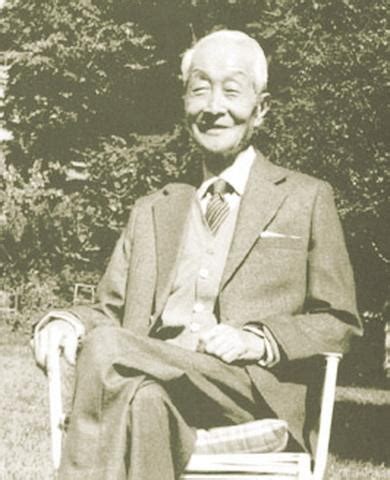A Quote by Albert Einstein
I do not share the crusading spirit of the professional atheist whose fervor is mostly due to a painful act of liberation from the fetters of religious indoctrination received in youth. I prefer an attitude of humility corresponding to the weakness of our intellectual understanding of nature and of our own being.
Related Quotes
By our attitude, we decide to read, or not to read. By our attitude, we decide to try or give up. By our attitude, we blame ourselves for our failure, or we blame others. Our attitude determines whether we tell the truth or lie, act or procrastinate, advance or recede, and by our own attitude we and we alone actually decide whether to succeed or fail.
Weakness of attitude becomes weakness of character; it becomes lack of power to act with courage proportionate to danger. All this must lead to the destruction of our intellectual life unless the danger summons up strong personalities able to fill the lukewarm and discouraged with new strength and resolution.
We need to approach the Bible each day with a spirit of deep humility, recognizing that our understanding of spiritual truth is at best incomplete and to some extent inaccurate ... we should approach the Scriptures in humility and expect the Spirit to humble us even further as we continue being taught by Him from His Word.
What evidence is there that we've adequately empathized with the other person? First, when an individual realizes that everything going on within has received full empathic understanding, they will experience a sense of relief. We can become aware of this phenomenon by noticing a corresponding release of tension in our own body.
Humility is the essence of repentance. Humility is selfless, not selfish. It doesn't demand its own way or speak with moral superiority. Instead, humility answers softly and listens kindly for understanding, not vindication. Humility recognizes that no one can change someone else, but with faith, effort, and the help of God, we can undergo our own mighty change of heart.
Mystical experience of nature can be of particular relevance to our troubled age, bringing deeper into our consciousness and emotions the logic that nature sustains humanity as humanity must, in turn, sustain nature. Rationality alone, however, cannot be our guide in the task of restoring our environment. A spiritual connection to nature must inspire the emotional commitment that is the yin, complementing the yang of intellectual understanding.
Worship is to feel in the heart . . . it is an attitude and a state of mind. It is a sustained act, subject to varying degrees of intensity and perfection . . . Real worship is, among other things, a feeling about the Lord our God . . . It is in our hearts. And we must be willing to express it in an appropriate manner. If we love the Lord and are led by His Holy Spirit, our worship will always bring a delighted sense of admiring awe and a sincere humility on our part.
The Holy Spirit as the Spirit of Power helpeth our infirmity in prayer. The Holy Spirit as the Spirit of Life ends our deadness in prayer. The Holy Spirit as the Spirit of Wisdom delivers us from ignorance in this holy art ofprayer. The Holy Spirit as the Spirit of Fire delivers us from coldness in prayer. The Holy Spirit as the Spirit of Might comes to our aid in our weakness as we pray.
A case can certainly be made that Christians bear a major responsibility for our ecological crisis. But the fault is not their biblical but their unbiblical view of nature. Christians have long failed to understand what the Bible really teaches concerning nature and our responsibility for it. For this there is no excuse. Repentance must be our first response. Our second response must then be to right the wrongs of our faulty understanding and act accordingly. We are all responsible to know what can be known of God's will for nature, and we are then responsible to act on that knowledge.
Fasting with a pure heart and motives, I have discovered, brings personal revival and adds power to our prayers. Personal revival occurs because fasting is an act of humility. Fasting gives opportunity for deeper humility as we recognize our sins, repent, receive God's forgiveness, and experience His cleansing of our soul and spirit. Fasting also demonstrates our love for God and our full confidence in His faithfulness.
Our attitude toward our own culture has recently been characterized by two qualities, braggadocio and petulance. Braggadocio - empty boasting of American power, American virtue, American know-how - has dominated our foreign relations now for some decades. Here at home - within the family, so to speak - our attitude to our culture expresses a superficially different spirit, the spirit of petulance. Never before, perhaps, has a culture been so fragmented into groups, each full of its own virtue, each annoyed and irritated at the others.



































